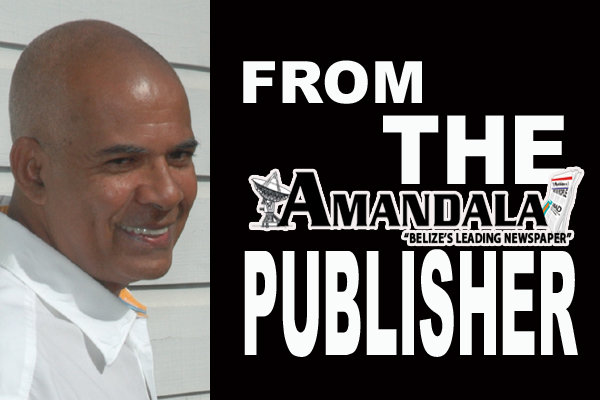With your kind permission, I want to use my column today to draw your attention to the horrific Guatemala City murder of Roman Catholic Bishop Juan Gerardi in April 1998. We will use the frontispiece from Francisco Goldman’s fascinating work, THE ART OF POLITICAL MURDER (Grove Press, 2007). Hopefully, more serious readers will become interested enough to order the book for their own reading and libraries.
Incidentally, in his authorized biography written by Godfrey Smith (after Bishop Gerardi’s murder), the Right Honorable George C. Price mentioned to Mr. Smith that he had met Bishop Gerardi during both of their seminary days in Guatemala. Between the late 1930s and early 1940s, Mr. Price first went to a black Catholic seminary in segregated Mississippi, then he spent a year or two at a seminary in Guatemala City.
When, on a Sunday night in April, 1998, Bishop Juan Gerardi was viciously bludgeoned to death in his parish house garage in Guatemala City, one of the most sensational, controversial and momentous murder cases in contemporary Latin America began. Was it a political assassination or a sordid domestic crime? The case became a fight over the destiny of a country just emerging from decades of civil war and awash in corruption and violence. Was justice possible or was it just a quixotic dream?
The first nonfiction book from acclaimed novelist Francisco Goldman, The Art of Political Murder is a suspenseful chronicle and reconstruction of a crime and an investigation in the tradition of Truman Capote’s In Cold Blood and Gabriel Garcia Márquez’s News of a Kidnapping.
Bishop Gerardi was murdered two days after he had presided over the publication of an unprecedented human rights report that found the Guatemalan Army primarily responsible for the war-time deaths and disappearances of 200,000 civilians, setting the stage for future charges against the military of crimes against humanity. The Army was the obvious suspect in the murder, but for decades its assassins had been free to kill with impunity.
But why, others asked, would the Army have killed the bishop two days after the release of the report? The government’s explanation was an interestingly bizarre story of a crime of passion that cast suspicion on the Church itself. That scenario, relentlessly pursued by the first prosecutor assigned to the case, involved homosexual liaisons, dissolute priests, a criminal gang led by the glamorous love child of an important prelate, and a German shepherd linked to the crime by a forensics expert in Spain.
The Art of Political Murder takes the reader deep inside the phantasmagoric and upside-down world of a broken state, where powerful CIA-trained Military Intelligence chiefs have gone from fighting guerrillas to working for drug cartels; where judges scheme against the law; where honest justice workers are vilified in the media while convicted murderers are given newspaper columns; a “democracy” where real power is clandestine, and society is controlled through blackmail, extortion, omnipresent informers, violence, and fear.
But the heart of The Art of Political Murder belongs to the Untouchables, a group of irreverent young men from the Church’s human rights office who decided to investigate the case themselves. Their brave ad enterprising detective work, along with that of a determined prosecutor, led to an unprecedented and historic trial. Goldman began reporting on the case soon after the murder and spent seven years following the investigation. His persistence led him to witnesses no other journalist gained access to.
The Art of Political Murder illuminates the dangers of confronting entrenched power in a corrupt state, and delivers a powerful lesson: that true change is only possible when people are willing to risk everything for it, whatever the price. A riveting story of terrifying evil and enormous courage, it is also as rich in human drama, enigma, and surprise as any novel.

